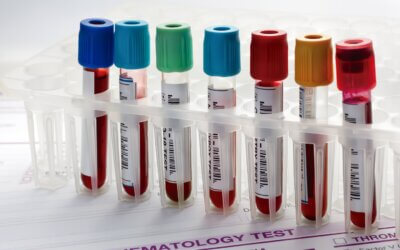NHS England has recently updated its genomic screening guidelines to better identify and manage aortic dissection and aortic aneurysm. These guidelines, known as GeNotes, are designed to aid healthcare professionals in making informed decisions about genetic testing at crucial stages of patient care. This initiative aims to improve detection rates and tailor treatments more effectively, leading to improved patient outcomes
The Essence of Updated Genomic Guidelines
Developed through the Genomics Education Programme, in collaboration with clinical and scientific experts, these guidelines provide healthcare professionals with quick, focused information essential for making informed decisions at each stage of patient care. The guidelines are meticulously designed around two pivotal stages: the presentation or testing stage, and the results stage, ensuring a comprehensive clinical pathway.
When to Consider Genomic Testing
The new guidance specifies conditions under which clinicians should consider genomic testing for patients:
- Early Onset. Presence of thoracic aortic aneurysm or dissection before age 50.
- Family History. Cases occurring before age 60 if there’s a first-degree relative with the condition.
- Lack of Conventional Risk Factors. Occurrences before age 60 without typical cardiovascular risks.
- Specific Syndromes and Features. Signs of Loeys-Dietz syndrome, Marfan syndrome with a low systemic Ghent score, or other suggestive features of aortopathy.
- Posthumous Discoveries. In deceased individuals, if detected at autopsy and family members could benefit from cascade testing.
This guidance emphasises that these criteria are not exhaustive; clinicians may pursue testing outside these parameters in consultation with an aortic genetics multidisciplinary team.
Practical Steps for Clinicians
For clinicians navigating the process, the pathway is clearly defined:
- Consultation and Eligibility. Refer to the National Genomic Test Directory to verify test eligibility and discuss potential cases with local inherited cardiac conditions (ICC) clinical services.
- Genetic Testing Panels. Check the NHS Genomic Medicine Service for detailed panel information. This includes the R125 Thoracic aortic aneurysm or dissection panel, which utilises whole exome sequencing.
- Sample Collection and Documentation. Clinicians are required to complete a test order and a consent form, noting detailed phenotype descriptions as per the human phenotype ontology (HPO) terms.
Providing Hope
With these updated guidelines, NHS England is setting a new standard in genomic healthcare, empowering clinicians to make more precise decisions that could significantly alter the course of treatment and potentially save lives. This strategic integration of genomics into clinical pathways highlights the importance of personalised medicine and the NHS’s commitment to adopting innovative approaches to healthcare challenges. As we progress, these guidelines support the Trust’s mission to improve aortic disease management, providing hope and new possibilities for patients and their families.





